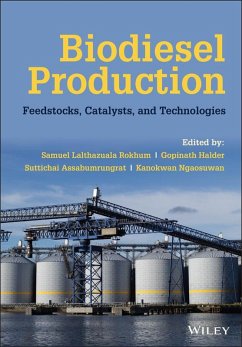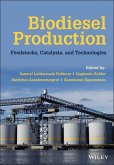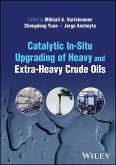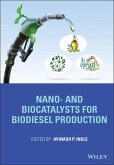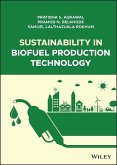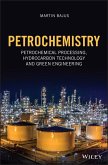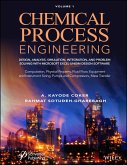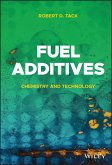An incisive discussion of biofuel production from an economically informed technical perspective that addresses sustainability and commercialization together In Biodiesel Production: Feedstocks, Catalysts and Technologies, renowned chemists Drs Rokhum, Halder, Ngaosuwan and Assabumrungrat present an up-to-date account of the most recent developments, challenges, and trends in biodiesel production. The book addresses select feedstocks, including edible and non-edible oils, waste cooking oil, microalgae, and animal fats, and highlights their advantages and disadvantages from a variety of perspectives. It also discusses several catalysts used in each of their methods of preparation, as well as their synthesis, reactivity, recycling techniques, and stability. The contributions explore recently developed technologies for sustainable production of biodiesel and provides robust treatments of their sustainability, commercialization, and their prospects for future biodiesel production. * A thorough introduction to the various catalysts used in the preparation of biodiesel and their characteristics * Comprehensive explorations of biofuel production from technical and economic perspectives, with complete treatments of their sustainability and commercialization * Practical discussions of the development of new strategies for sustainable and economically viable biodiesel production * In-depth examinations of biodiesel feedstocks, catalysts, and technologies Perfect for academic researchers and industrial scientists working in fields that involve biofuels, bioenergy, catalysis, and materials science, Biodiesel Production: Feedstocks, Catalysts and Technologies will also earn a place in the libraries of bioenergy regulators.
Dieser Download kann aus rechtlichen Gründen nur mit Rechnungsadresse in A, B, BG, CY, CZ, D, DK, EW, E, FIN, F, GR, HR, H, IRL, I, LT, L, LR, M, NL, PL, P, R, S, SLO, SK ausgeliefert werden.

